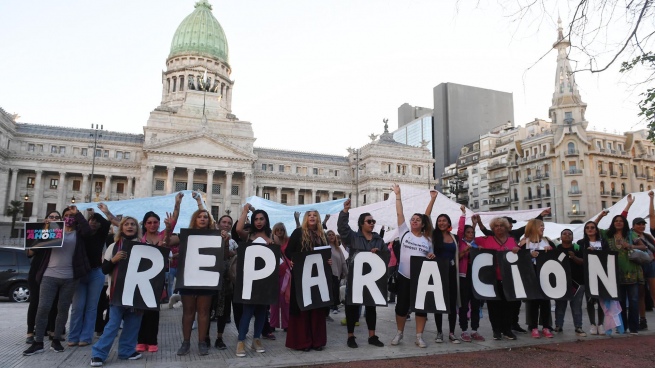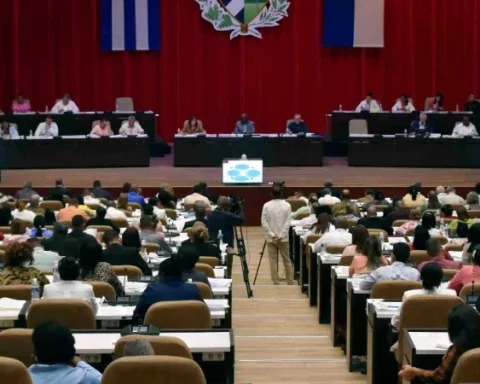A phrase from Cocó, a trans teenager who turns 15 on the same day that the Gender Identity Law reaches its first decade, sums up the impact of accessing rights based on collective constructions: “We have a lot to thank the who fought for the law, because without them, trans children would not be here”.
On May 9, 2012, Congress sanctioned the Gender Identity Law No. 26,743, the first in the world that does not pathologize trans identities and allows access to the registry change through a simple administrative procedure., without the need to accredit medical expertise, surgical interventions or hormonal treatments. In addition, it recognizes the right to comprehensive health.
Adolescent Coco and Marcela Romero, close to turning 60, spoke with Alicia Alvado to testify to the impact that an inclusive public policy has on the lives of people and society.
You can read them at A teenager and an older adult tell how the Gender Identity Law changed their lives.
That impact is also seen in The parents of a trans teenager wrote a book to encourage love of their own body, with interviews with Carola Reynoso and Sebastián Pairone, mother and father of Valentín, the protagonist of the publication.
The civil association Mocha Celis, through its #EmpleoTrans program, conducts a training course in specific care and accompaniment of adults and older adults aimed at transvestites, trans and non-binary people.
Argentina was a pioneer in this legislation that had an impact on claims to access the right to gender identity in other countries.
There is a complete map that Florencia Fazio prepared where she says that in Latin America the first to sanction a gender identity law were Panama, in 2006; Uruguay, in 2009; and Brazil, in 2010; but the one in Argentina, two years later, marked a turning point for considering it from a depathologizing perspective and without demanding medical requirements.
It is a very complete report that covers the reality of each continent in relation to norms and rights.
Also in music, the impact of the legal framework comes in different expressions, such as the Chair of Dissident Singing at the University of the Arts (UNA), which celebrated its first anniversary as a pioneering space for lyrical training with a non-binary perspectiveand celebrated it with the conviction of “raising these different vocalities to continue shouting the things that hurt us”, says the head of the subject, the trans and non-binary singer and artivist Luchi de Gyldenfeldt.
The same thing happens when walking the corridors of the Buenos Aires International Book Fair. Milena Heinrich found biographies of people who transitioned from one gender to another, political manifestos that resist the binarism of categories, stories of trans and transvestite childhoods and adolescents, Comprehensive Sex Education books, manga reversals with inclusive perspectives, decolonial readings that they cross gender, class and ethnicity, or fictions written by non-hegemonic bodies and identities.
Over the weekend, the official Renaper report arrived, which provides quantitative data and allows us to analyze, thanks to the numbers, 10 years of legislation. can be read in In a decade, 12,655 people changed their ID due to the Gender Identity Law.
Télam’s photographic archive adds here historical moments of struggles and conquests until reaching a law that opened doors to other rights, such as the transvestite job quota, the non-binary DNI and the CUIL/CUIT without gender.
There is a banner to celebrate the lawto ask for historical reparation for the survivors of institutional repression for reasons of gender identity and the inclusion of transvestite and trans elderly people in social security.
And of course, the request is still valid: We want to know where Tehuel de la Torre is.
Lohana Berkins, Diana Sacayán, Claudia Pia Baudracco and many more, throughout the country, fought for the right to identity.
His legacy is strong and powerful in all the Cocos that are free today.


















